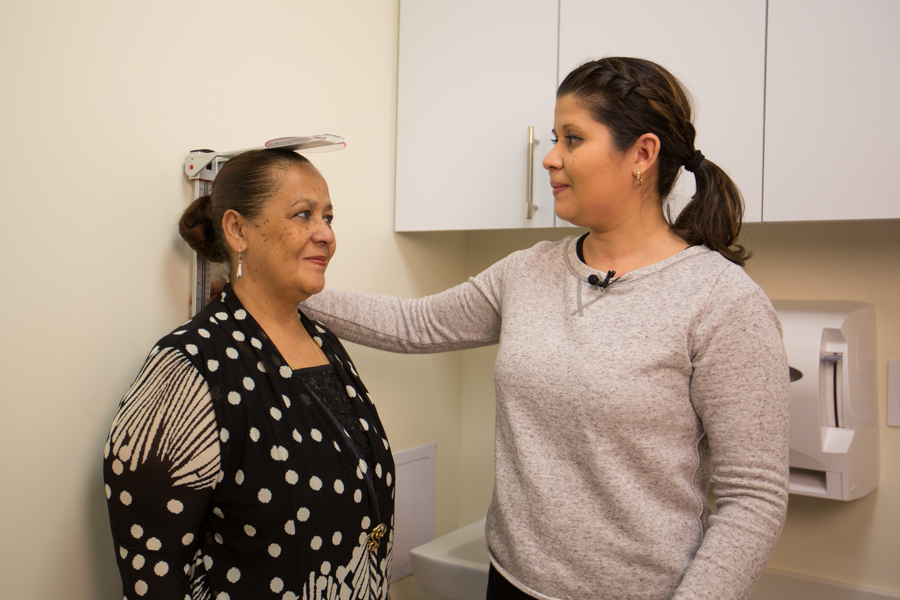The Hispanic Community Health Study/Study of Latinos (HCHS/SOL) is the largest health study of Hispanics/Latinos in the United States to date. As explored in a previous post on this blog, Einstein investigators in the Bronx lead one of the four sites for this project. The other sites are in Chicago, Miami and San Diego.
While it has long been recognized that Hispanics/Latinos are understudied, HCHS/SOL is in the forefront of efforts to focus attention on the research gaps affecting this population. A science advisory paper from the American Heart Association published this past July outlines the priorities for improving cardiovascular health in the Hispanic population. This is the first such report in the field, and results from HCHS/SOL were widely cited by the report’s authors. These discoveries not only will improve the health of Hispanics/Latinos but will have an impact on the health of the U.S. population at large.

A participant in the Hispanic Community Health Study/Study of Latinos (HCHS/SOL) has her height measured. Albert Einstein College of Medicine is one of four sites participating in the study.
HCHS/SOL aims to learn more about the causes and consequences of cardiovascular disease, diabetes, obesity and a range of other common health problems. More than 4,000 people from the Bronx are currently participating in the Einstein arm of the study, attending study visits at our HCHS/SOL Research Center at 1 Fordham Plaza. The success of this longitudinal study depends greatly on participants’ dedication and their contribution of time and effort.
Deepening Health Knowledge, Giving Back to the Community
Why would a person choose to be in a research study such as HCHS/SOL? We routinely ask our participants what motivates them to sign up and stay enrolled. Most tell us they joined the study for altruistic reasons. Almost everyone has a family member with heart disease or diabetes. They recognize that these conditions affect large numbers in their community. Our participants say they want to help find new ways to prevent and treat common diseases that affect their community.
“Healthy” Until . . .
That was the case with Ms. L. She is a retired woman in her 60s who has been treated with medicines for hypertension for years. When she heard that a Hispanic health study was being conducted in the Bronx, she immediately wanted to be part of it. She felt very fortunate when it turned out that her household was one of those randomly selected by HCHS/SOL to be invited to join the study.
Like many HCHS/SOL participants, Ms. L. had a doctor she liked, and she felt that her medical conditions were under control. Still, she wanted to join the study to give back to her community. She was so excited about HCHS/SOL that she convinced her husband to enroll as well.
During her initial visit, Ms. L. promptly arrived at the clinic and underwent a comprehensive clinical examination. Everything went smoothly until her ECG (heart) test was performed. The test suggested that Ms. L. was having an acute health event, and our HCHS/SOL team arranged for this participant to have urgent transportation to the hospital for further evaluation. Ms. L. ended up undergoing emergency cardiac surgery. Thankfully, she is now fully recovered. She still continues her participation in the study.
While not all participants have a story quite as dramatic as that of Ms. L., all receive reports of their health test results. Our study team provides them with information about healthy lifestyle choices and medical referrals if needed. What we’ve seen so far is encouraging: increased knowledge and awareness have allowed many participants to improve their health.

